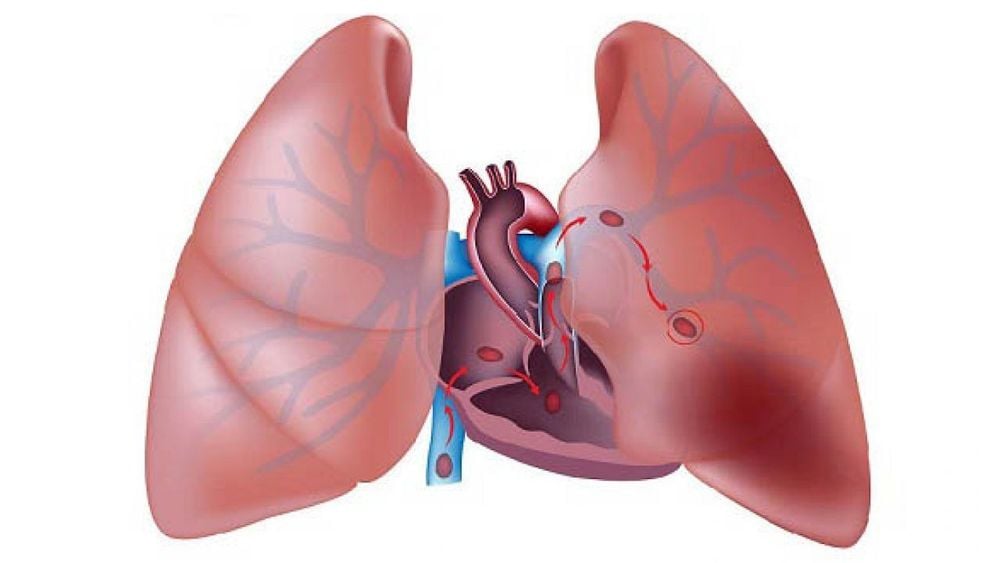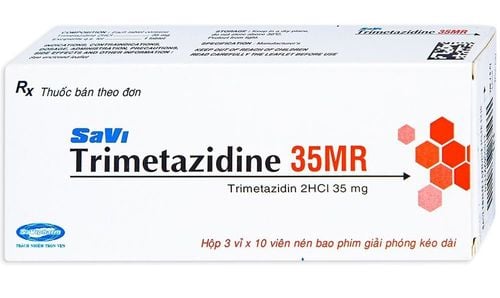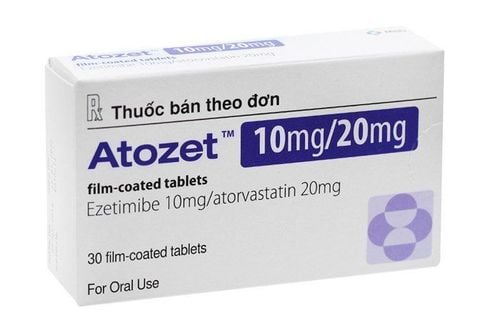This is an automatically translated article.
Atypical angina differs from typical angina in the absence of all the signs of an ischemic heart attack. Symptoms of atypical angina can range from a dull, sharp pain to watery eyes or present as shortness of breath or back pain.1. What is atypical angina?
Atypical angina is defined as chest pain that does NOT have all three features of a typical angina attack.The "classic" features of a typical angina attack include all three of the following:
Chest pain or discomfort in the mid-thoracic region behind the breastbone Pain that gets worse with exertion or strain Decrease pain or get better with rest or nitroglycerin. Instead, atypical angina will manifest as a sharp, stabbing pain or tearing at a specific point on the chest and can last for hours or days. The person may also experience coughing or shortness of breath as well as difficulty swallowing along with the pain.
Atypical angina can be treated with close monitoring of progression, combined with medication, or sometimes even surgical intervention. If the pain becomes increasingly severe or the person feels short of breath, or has a history of cardiovascular disease, they should seek medical attention immediately.
Maybe your signs are not atypical chest pain but you still need to do further tests and basic tests to make a definite diagnosis of the pain, including electrocardiogram, echocardiogram , chest X-ray and blood test.
MORE: What is unstable angina?

Đau thắt ngực không điển hình có thể được điều trị bằng cách theo dõi sát diễn tiến của cơn đau
2. Atypical manifestations of angina
2.1. Major Manifestations As noted, atypical angina does not have all three features of a chest pain as a sign of a heart attack. Therefore, atypical angina may have the following characteristics:Intensity of pain: Unlike typical chest pain, atypical angina is often described as a dull ache or sensation. pressure on the chest wall or possibly stabbing pain or tearing. Atypical chest pain may be worse with inhalation and chest compressions and may be relieved by leaning forward. In cases where the pain is aggravated by eating and drinking, the cause suggests a gastrointestinal origin. Location of onset: Atypical chest pain may be located in a specific area of the chest, unlike typical chest pain, which is often felt throughout the chest. Atypical chest pain may also radiate to the back. However, if the pain radiates down the arm or neck, it is a sign of typical chest pain. Circumstances of onset and duration: Atypical chest pain can come on suddenly, which is unusual for typical chest pain. Besides, atypical chest pain can also last for hours or days, while typical chest pain usually doesn't last more than 20 to 30 minutes.
3. Other manifestations of atypical angina
Other symptoms of atypical chest pain will likely include the following.Cough or shortness of breath: Atypical chest pain may be accompanied by coughing or shortness of breath, especially if it is due to a lung-related cause. Gastroesophageal reflux disease (GERD) can also cause a persistent cough. Pain or difficulty swallowing: Atypical chest pain may be accompanied by pain or difficulty swallowing if it is due to a gastrointestinal cause such as gastroesophageal reflux disease.

Thuyên tắc phổi cũng có thể là nguyên nhân gây đau thắt ngực không điển hình
4. Atypical causes of chest pain
Atypical chest pain usually refers to chest pain that is not "typical" caused by a heart attack. However, sometimes the definition of atypical chest pain is unclear. Instead, your doctor will look for other signs that accompany the pain to determine the cause and guide treatment. Many causes can cause atypical chest pain and some are described below.4.1. Heart attack Heart attack: Atypical chest pain should be thought of as the primary cause of a heart attack, even without all of the "typical" symptoms. In particular, women, older adults, and people with diabetes who have had a heart attack are more likely to present with symptoms other than typical chest pain, such as shortness of breath, nausea or vomiting, or bowel movements. .
4.2. Heart-related causes other than a heart attack In addition to a heart attack, other heart-related causes can cause atypical chest pain. Some of these include:
Inflammation of the heart: This can be the pericardium (pericarditis) or the heart muscle (myocarditis) Heart valve disease Aortic dissection: This is a tear in the wall Large blood vessel that carries blood away from the heart. 4.3. Other Causes Pulmonary Causes: Because the lungs are also located in the rib cage, physical disorders of the lungs can also cause atypical chest pain, eg pulmonary embolism (blood clot in the lung) ), pneumothorax causing atelectasis, pneumonia (infection in the lungs), asthma or chronic obstructive pulmonary disease (COPD), lung cancer.
Gastrointestinal causes: The esophagus and stomach are both located in or near the chest. Accordingly, disorders of these organs can also cause atypical chest pain, such as: gastroesophageal reflux disease (GERD) when an amount of acid from the stomach backs up into the esophagus causing irritation. like, gastritis when the lining of the stomach is inflamed, esophagitis with scratches or tears on the lining of the esophagus.
Musculoskeletal causes of chest pain: Damage to the muscles or bones in the chest is another common cause of atypical chest pain. Musculoskeletal chest pain can result from direct trauma to the chest, which can lead to tissue damage and broken ribs, as well as chest trauma from overuse.
Psychological causes: Anxiety and panic attacks can cause heart attack-like symptoms. During a panic attack, the person may experience sudden chest pain or tightness, shortness of breath, dizziness, and intense fear. However, this is usually only true for patients under the age of 40 who are healthy and have no prior heart disease. Conversely, for older adults, with multiple comorbidities or cardiovascular risk factors, an active search for the cause should be sought before attributing the possibility to a panic attack.
In summary, even heart attacks can cause atypical chest pain, and atypical angina can be caused by organs other than the heart. Therefore, it is important that the concept of "atypical angina" is recognized by the doctor, combined with the support of the paraclinical means, in order to treat it promptly if this is a deficiency attack. true myocardial ischemia.
To protect cardiovascular health in general and detect early signs of cardiovascular disease, customers can sign up for the Cardiovascular Screening Package of Vinmec International General Hospital. The examination package helps to detect cardiovascular problems at the earliest through tests and modern imaging methods. The package is for all ages, genders and is especially essential for people with risk factors for cardiovascular disease.
At Vinmec, customers are examined with simple and fast procedures; Enthusiastic advice and support, reasonable and convenient examination process. Comprehensive facilities, including a system of clinics and consultations, blood collection rooms, dining rooms, waiting areas for customers... Professional, caring way of working.
Please dial HOTLINE for more information or register for an appointment HERE. Download MyVinmec app to make appointments faster and to manage your bookings easily.













